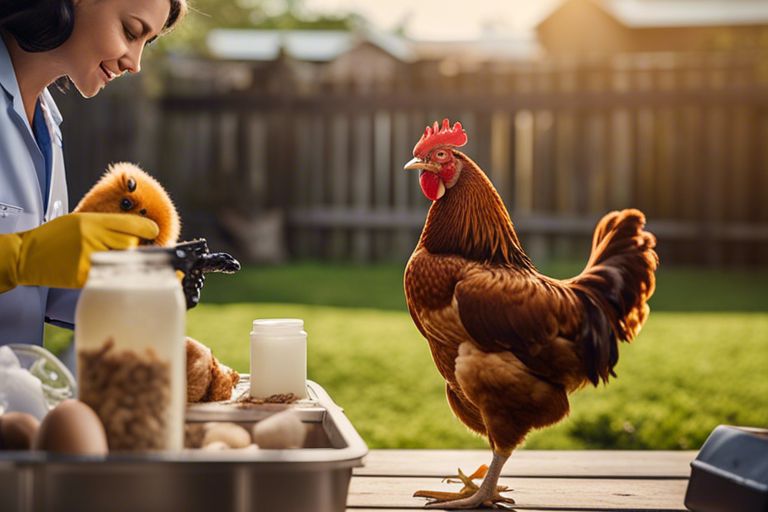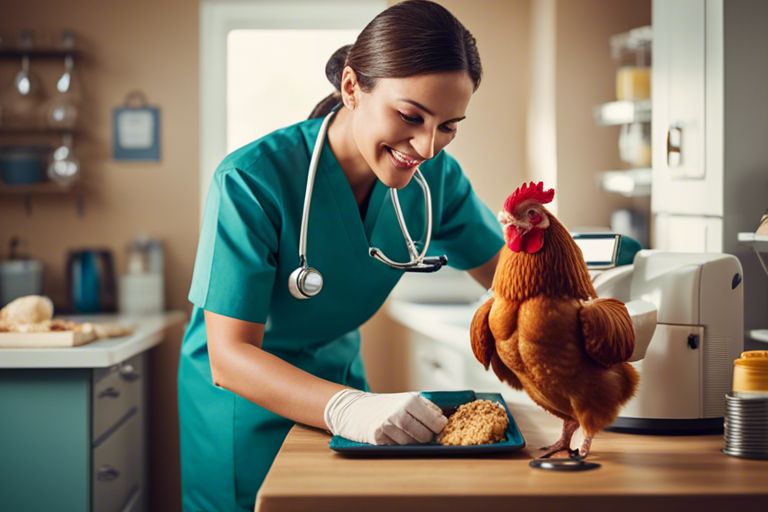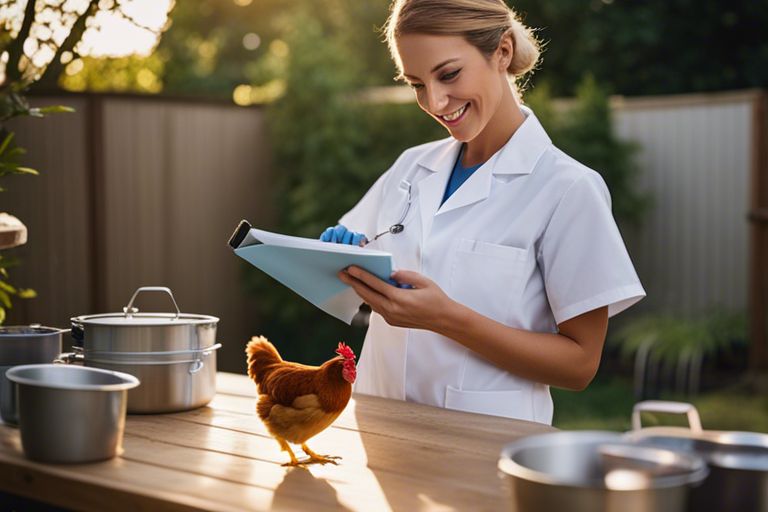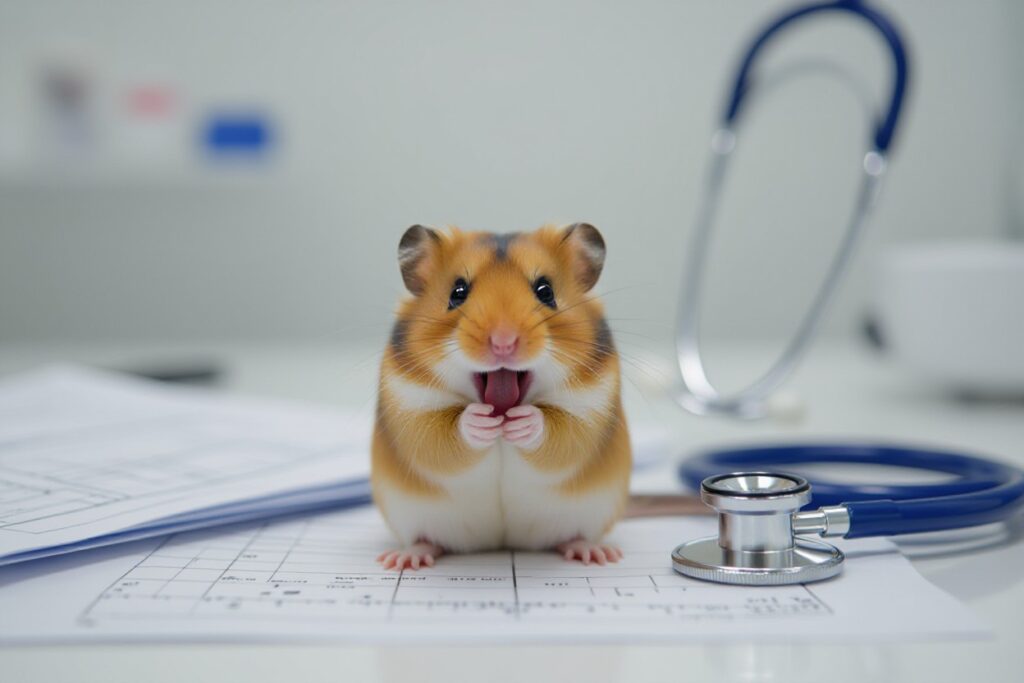Overlooking the health of your chickens can lead to a myriad of common health issues. It is crucial for chicken owners to be proactive in preventing illnesses that can affect their flock. By implementing proper care routines and preventive measures, you can ensure that your chickens lead healthy and happy lives. In this guide, we will discuss crucial tips and strategies to help you prevent common chicken health issues and maintain a thriving flock.
How-To Recognize the Signs of Illness in Chickens
Identifying Symptoms and Abnormal Behaviors
Even the most vigilant chicken owners may miss the early signs of illness in their flock. It is crucial to observe your chickens daily for any changes in behavior or appearance. Look for signs such as droopy wings, lethargy, decreased appetite, abnormal droppings, sneezing, coughing, or discolored combs and wattles.
Regular Health Check-ups and Monitoring
One of the best ways to prevent common health issues in chickens is to schedule regular health check-ups and monitoring. This involves physically examining each bird, checking for any abnormalities, and keeping track of their weight and egg production. It is recommended to have a poultry veterinarian perform a thorough examination at least once a year.
It is important to keep detailed records of each chicken’s health status, including any treatments or medications administered. Regular monitoring can help detect and address potential health problems early, increasing the chances of successful treatment and recovery for your flock.

Tips for Maintaining a Clean and Safe Coop Environment
Clearly, maintaining a clean and safe coop environment is vital for the health and well-being of your chickens. To ensure a healthy space for your flock, follow these important guidelines:
Essential Coop Design and Maintenance
Clean your coop regularly to prevent the buildup of droppings and debris. Provide proper ventilation to avoid moisture and ammonia buildup, which can lead to respiratory issues. Ensure there are enough nesting boxes and roosting bars for all your chickens, and replace any worn-out or damaged materials promptly.
Pest Control and Sanitation Practices
Tips for controlling pests in and around the coop include keeping feed in sealed containers, removing standing water sources, and using natural pest repellents like diatomaceous earth. Regularly clean and disinfect the coop, paying special attention to nest boxes and roosting areas. Consider implementing a regular deworming schedule for your chickens to prevent infestations.
Assume that maintaining a clean and safe coop environment is a continuous process that requires diligence and attention to detail. By following these guidelines, you can help prevent common chicken health issues and ensure a happy and healthy flock.

Factors that Influence Chicken Health
Keep in mind various factors that can influence the health of your chickens. These factors include nutrition, stress levels, housing conditions, and overall management practices.
Nutritional Needs and Diet Optimization
Some key nutritional needs for chickens include a balanced diet rich in proteins, vitamins, and minerals. It’s crucial to optimize their diet to ensure they receive all the necessary nutrients for good health, proper growth, and strong egg production.
The Role of Stress and How to Minimize It
Optimization is vital when it comes to minimizing stress in your flock. Stress in chickens can lead to a variety of health issues, including decreased egg production and weakened immune systems. By providing a comfortable and secure environment, regular access to clean water, and reducing disturbances, you can help minimize stress levels in your chickens.
Stress can also be caused by overcrowding or aggressive behavior within the flock. It’s crucial to provide enough space for your chickens to move around freely and establish a pecking order without too much aggression.

Implementing Effective Disease Prevention Strategies
Vaccination and Biosecurity Measures
To ensure the health and well-being of your flock, it is crucial to implement vaccination protocols and strict biosecurity measures. Vaccinations can help protect your chickens from common diseases such as Marek’s disease, Newcastle disease, and infectious bronchitis. Additionally, practicing good biosecurity, such as limiting visitors, disinfecting equipment, and preventing contact with wild birds, can help prevent the introduction and spread of diseases within your flock.
Handling Outbreaks and Applying Quarantine Practices
During an outbreak of disease in your flock, it is vital to act swiftly and decisively. Some key steps to take include isolating sick birds, implementing strict quarantine measures for affected birds, and seeking veterinary advice. Quarantine practices involve separating sick or newly acquired birds from the rest of the flock to prevent the potential spread of disease. Additionally, maintaining good hygiene and regularly cleaning and disinfecting the coop can help control the outbreak and prevent further infections.
Biosecurity plays a crucial role in preventing the introduction and spread of diseases in your flock. By implementing biosecurity measures such as controlling visitor access, disinfecting equipment, and monitoring the health of your birds regularly, you can minimize the risk of disease outbreaks. It is important to develop a biosecurity plan tailored to your farm’s specific needs and regularly review and update it to ensure the health and safety of your chickens.
Conclusion
Summing up, preventing common chicken health issues involves maintaining good coop hygiene, providing a balanced diet, monitoring for signs of illness, and implementing biosecurity measures. By following these strategies, you can help to keep your flock healthy and happy. Keep in mind, early detection and proactive measures can go a long way in preventing and managing chicken health issues.
FAQ
Q: What are some common chicken health issues?
A: Common chicken health issues include respiratory infections, mites and lice infestations, egg-laying problems, and bumblefoot.
Q: How can I prevent respiratory infections in chickens?
A: To prevent respiratory infections in chickens, ensure proper ventilation in the coop, keep the coop clean and dry, and avoid overcrowding.
Q: What steps can I take to prevent mites and lice infestations in my flock?
A: To prevent mites and lice infestations, regularly clean and disinfect the coop, dust chickens with diatomaceous earth, and quarantine new birds before introducing them to your flock.
Q: What are some common signs of egg-laying problems in chickens?
A: Common signs of egg-laying problems in chickens include soft-shelled eggs, abnormal eggs, egg binding, and a decrease in egg production.
Q: How can I prevent egg-laying problems in my chickens?
A: To prevent egg-laying problems, provide a balanced diet with adequate calcium, ensure chickens have access to fresh water at all times, and provide nesting boxes with clean bedding.
Q: What is bumblefoot and how can I prevent it in my chickens?
A: Bumblefoot is a bacterial infection that affects the feet of chickens. To prevent bumblefoot, provide clean and dry bedding in the coop, avoid sharp objects that can cause injuries, and regularly inspect your chickens’ feet for any signs of swelling or redness.
Q: How often should I conduct health checks on my chickens?
A: It is recommended to conduct health checks on your chickens at least once a week. Look for any signs of illness, injury, or abnormal behavior during these checks.











